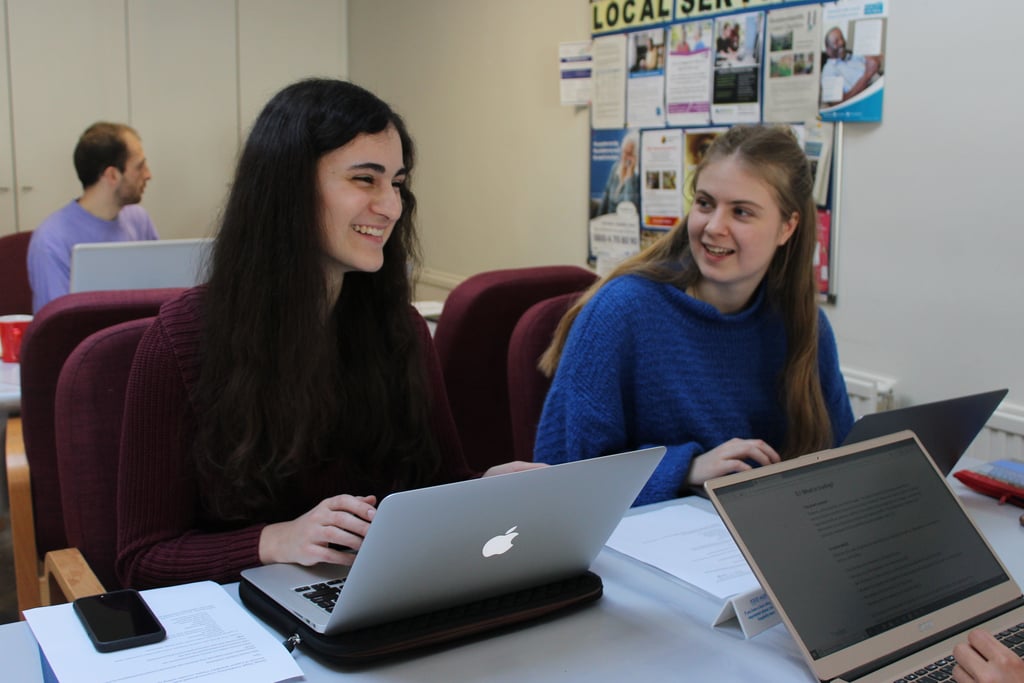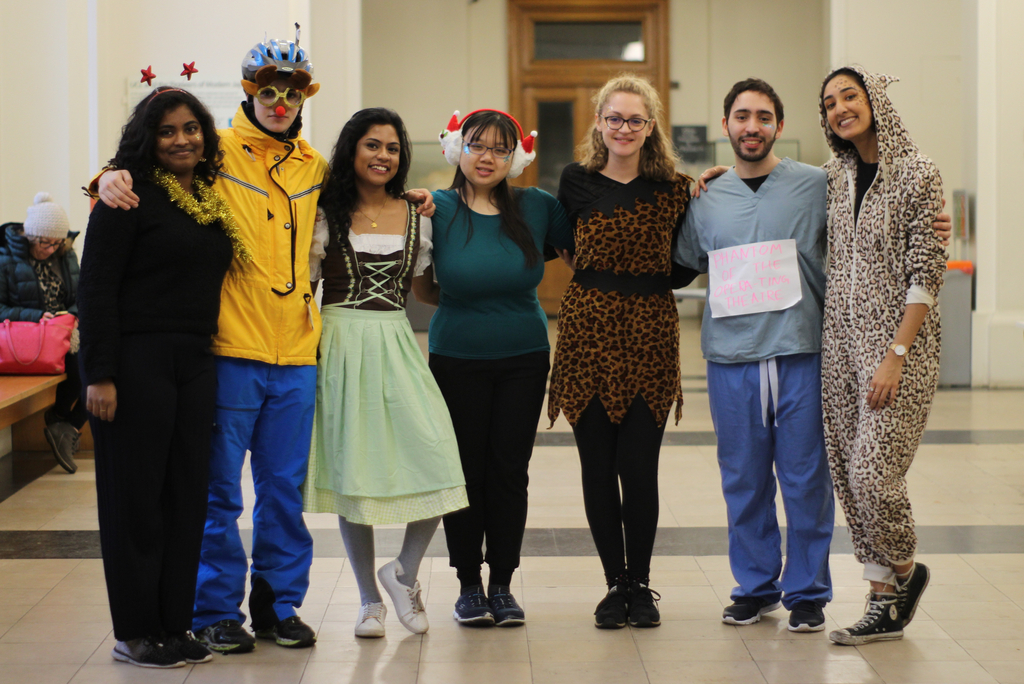In the spirit of mental health awareness week, we’re sharing the links between mental wellbeing and volunteering. Volunteers have a massive impact on the mental health of others - and volunteers benefit from it too.
Did you know that volunteering improves the wellbeing of the volunteers?
It’s official - even research studies find a strong correlation between volunteering and better mental health. It makes sense, as helping others, being social and feeling a sense of purpose can greatly improve mental wellbeing. Other UCL volunteers understand too - almost every story students share (read all of them here!) mentions the fulfilment volunteering can bring. Whether it’s a one day event like our hackathons, or a long term volunteering commitment, volunteering imparts a sense of purpose. In times of lockdown, students like Zainab find volunteering makes her feel productive - even when she can’t leave her home. Seeing the impact volunteering has on others can also be a huge boost of confidence - Ameerah has felt a positive impact on her own wellbeing and development as a volunteer mentor.

Volunteering is also a great way to take a mental break from your studies. One of the best parts of volunteering for Ania, a volunteer for PPL PWR, is “having some non-academic work to look forward to.” Stepping away from the library and exercising a different skill set gives balance and relief from academic stressors.

We all know the pandemic has made socialising difficult - another massive strain on mental health - and volunteering helps with that too. One of our Student-Led Project Leaders, Volodymr, told us how he enjoys meeting and learning from other students through his role with Project Impactive. Volunteering with others that share your passions and interests is a recipe for making “long lasting relationships,” like Natasha with Girlguiding St. Pancras. For those that don’t have a lot of time on their hands, even single-day events enable volunteers to meet new people. Homesickness can also negatively impact our mental health, but lots of international students find that volunteering helps them feel more at home in a new country.

Volunteering is also a fantastic way to support the mental health and wellbeing of others.
With the effects of the pandemic still present, volunteers are making all the difference in reconnecting communities and supporting wellbeing. Volunteers can help struggling individuals directly. As a befriender, volunteers significantly reduce loneliness through reliable relationships. Giving wellbeing calls prevents people from suffering in isolation and connects them with resources. Co-hosting peer support groups gives people a place to discuss issues, thoughts, complaints or just chat. Student-Led Projects also support people’s wellbeing, such as the Camden Carers Centre Project. The leader, Laura, explains that as a former carer herself, she understands the importance of caring for carers. Now, students involved in her project are doing just that.

Alternatively, volunteers can support mental health and awareness indirectly. Blogging is a great way to spread information and awareness. Volunteers could support services through raising and managing funds. For some organisations, ambassadors play a key role in recruiting other volunteers. Helping organisations with community outreach and events is also a great way to promote health and wellbeing.
If you want to find a cause that you are passionate about, improve your own mental health and help others, then get started by checking out our directory.
Written by Izzie Redman - Student Administrative Assistant
If you need support with your mental health or wellbeing, check out the services offered with UCL's Student Support and Wellbeing. There is also the Union's Advice Service who can provide help on different issues.
Don't forget to check out these wellbeing events and activities that are happening over the coming weeks.